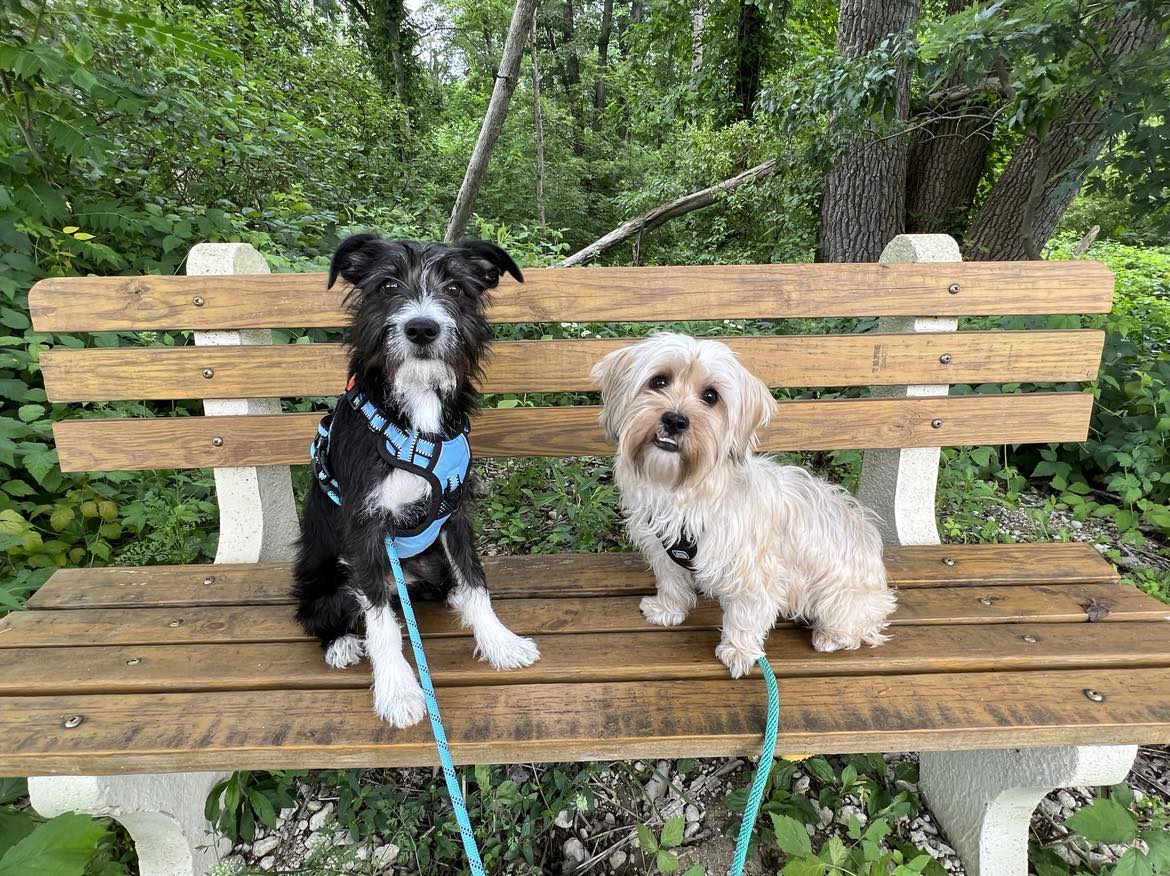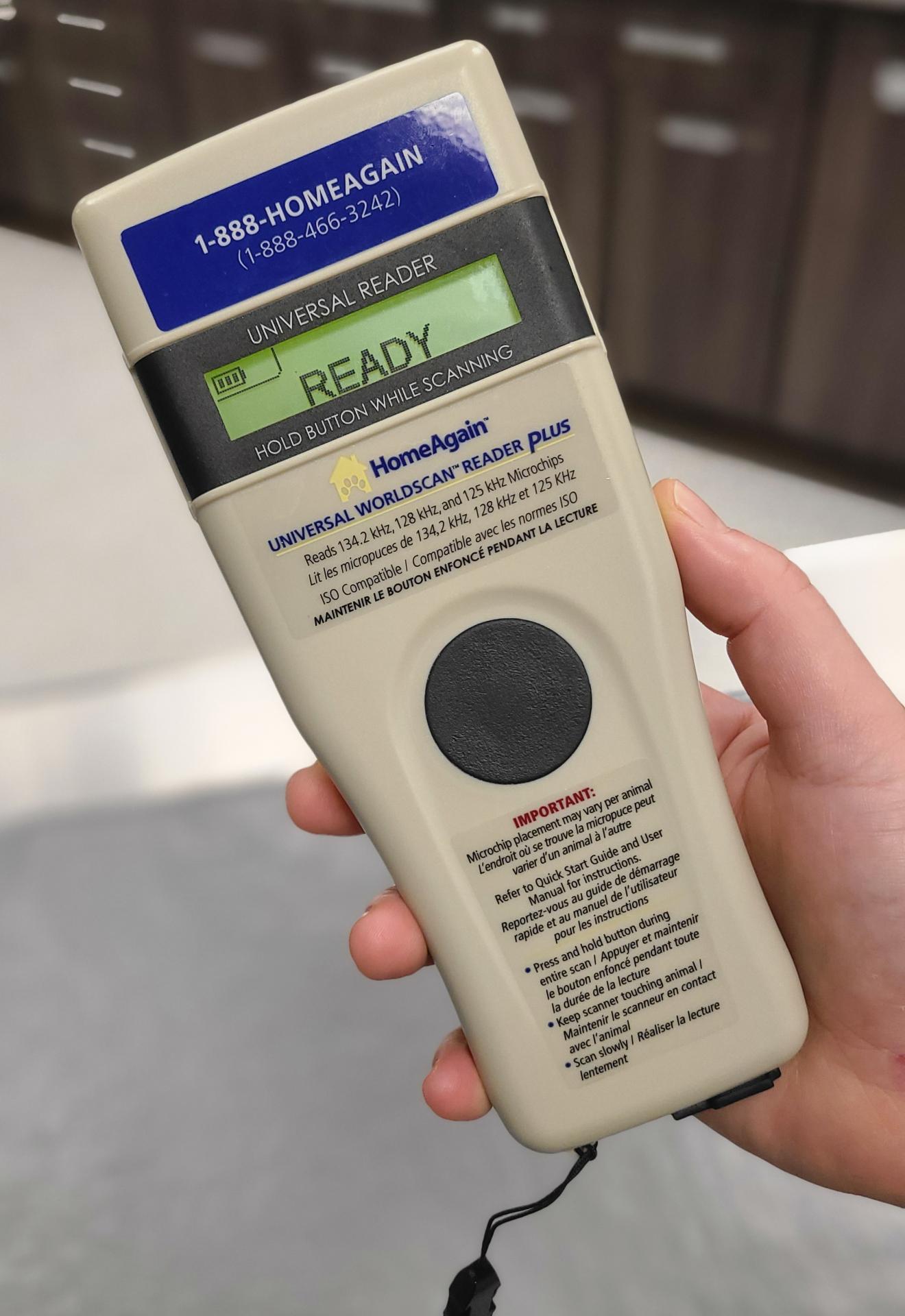 In light of starting the new year with your best paw forward:
In light of starting the new year with your best paw forward:
We want to highlight ways to prepare you and your pet for those situations none of us can anticipate. We want the best for our pets, and in times of emergency it is important to have a plan in place.
Pet preparedness is often overlooked, but it can make the difference in the comfort and continuity of care for your dog or cat.
Microchipping
 Microchipping your pet is an easy way to permanently identify your four legged family member. This identification can be used to make sure they have the best chance of returning home if they get lost. There are many unexpected ways this can happen from getting scared off from fireworks, to accidentally escaping the house or yard. Disasters like a fire or tornado can also separate families and their pets. Having a registered microchip for your pet is one of the best ways to prove ownership and get them back to their family as quick as possible. The unfortunate reality is that collars with tags can slip off or be taken off and your pet cannot talk for themselves. Microchipping is an inexpensive and permanent solution to this. According to the AVMA a study was conducted with over 7,700 stray dogs and cats in shelters in 23 states across the United States. It found that those pets who had registered chips are far more likely to be returned to their owners. In Dogs they were returned at double the rate of unchipped stray dogs and in cats, the number was even higher. A microchip can be inserted at any in clinic appointment. Contact any of our locations if you wish to get your pet protected.
Microchipping your pet is an easy way to permanently identify your four legged family member. This identification can be used to make sure they have the best chance of returning home if they get lost. There are many unexpected ways this can happen from getting scared off from fireworks, to accidentally escaping the house or yard. Disasters like a fire or tornado can also separate families and their pets. Having a registered microchip for your pet is one of the best ways to prove ownership and get them back to their family as quick as possible. The unfortunate reality is that collars with tags can slip off or be taken off and your pet cannot talk for themselves. Microchipping is an inexpensive and permanent solution to this. According to the AVMA a study was conducted with over 7,700 stray dogs and cats in shelters in 23 states across the United States. It found that those pets who had registered chips are far more likely to be returned to their owners. In Dogs they were returned at double the rate of unchipped stray dogs and in cats, the number was even higher. A microchip can be inserted at any in clinic appointment. Contact any of our locations if you wish to get your pet protected.
Having a Designated Caretaker
 A key aspect of pet preparedness is having an individual you can trust to care for your pet in your absence. This plan should be similar to how children would be cared for in the absence of a guardian. The person you choose should be familiar with your pet, their individual needs including routines and health conditions. This individual should not commonly travel with you so you are not together if a situation arises. Having written instructions that include their medications, dosages, feeding regime, and emergency contact information should be included as well. Information regarding their local veterinarian and how to access their mobile medical records if needed. A list of local emergency providers should be included and can be accessed on our website. The designated caretaker should also have written permission to take your pet to their veterinarian if needed along with a plan of how those treatments would be paid for if needed. We provide a permission to treat/ pet care consent form on our website that you can fill out at any time. Don't forget to include how your pet is best transported and tricks or tips to make this as easy for your pet when they are upset that you are not there to comfort them.
A key aspect of pet preparedness is having an individual you can trust to care for your pet in your absence. This plan should be similar to how children would be cared for in the absence of a guardian. The person you choose should be familiar with your pet, their individual needs including routines and health conditions. This individual should not commonly travel with you so you are not together if a situation arises. Having written instructions that include their medications, dosages, feeding regime, and emergency contact information should be included as well. Information regarding their local veterinarian and how to access their mobile medical records if needed. A list of local emergency providers should be included and can be accessed on our website. The designated caretaker should also have written permission to take your pet to their veterinarian if needed along with a plan of how those treatments would be paid for if needed. We provide a permission to treat/ pet care consent form on our website that you can fill out at any time. Don't forget to include how your pet is best transported and tricks or tips to make this as easy for your pet when they are upset that you are not there to comfort them.
